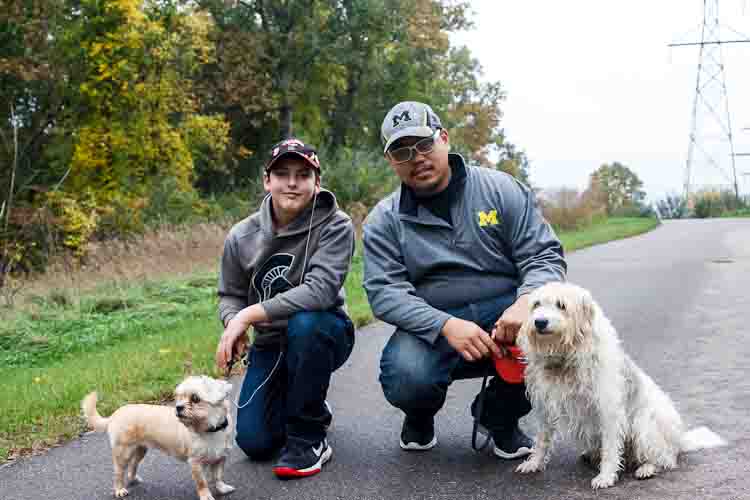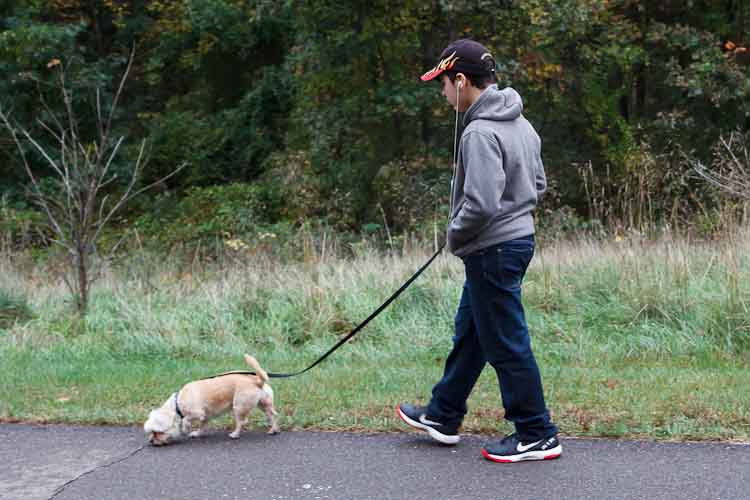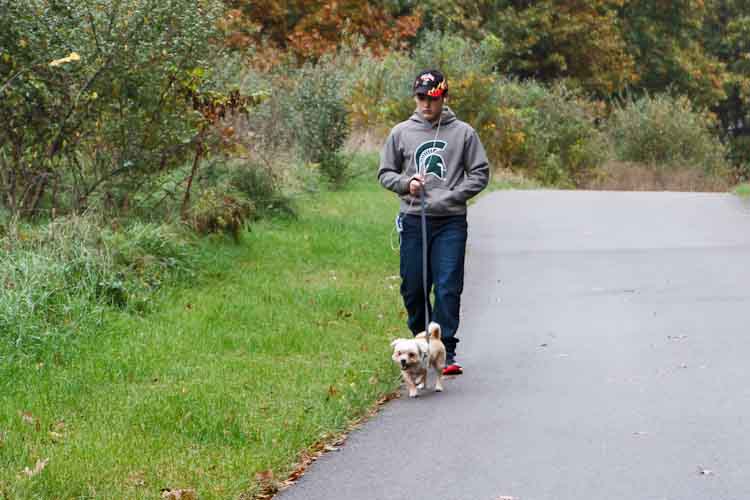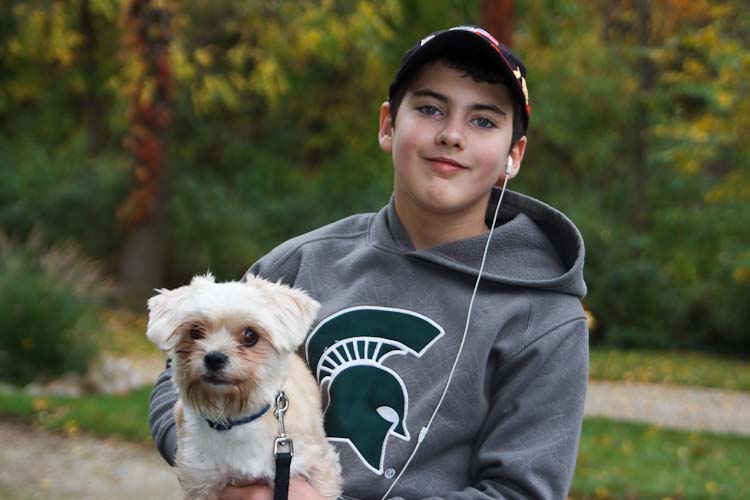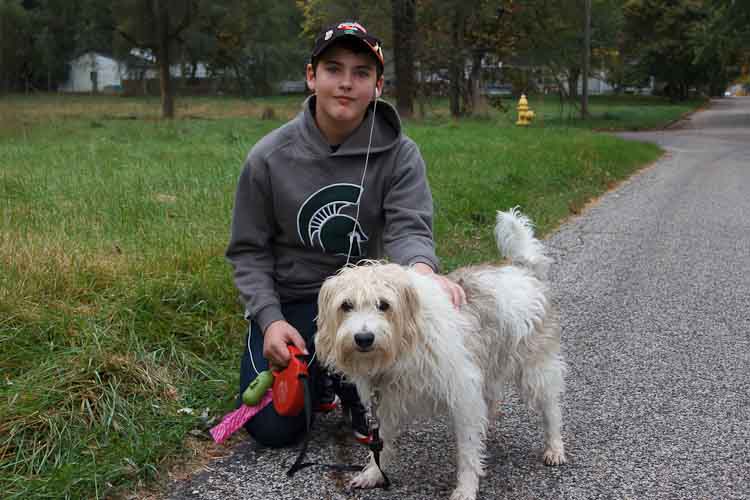From elementary schoolers to adults, Generation E inspires entrepreneurs
Sometimes kids can inspire their parents. That's what happened when the Diamante household found its entrepreneurial spirit thanks to Generation E Institute.
What do you want to be when you grow up?
The Generation E Institute knows that people face that question from early childhood well into adulthood. Now parents are taking inspiration from their children who have been through the program.
In the years since Second Wave profiled the Battle Creek-based nonprofit in 2012, GenE has expanded the reach of its entrepreneurial education.
Since 2005, GenE has focused primarily on middle-school and high-school students interested in starting their own small business. Students learn to turn an idea into a profitable product or service, to plan, finance and market. At the annual GenE Annual Student Business Showcase, students present business plans ranging from clothing design to green cleaning products and dog-walking services.
In 2009, GenE began Center for Entrepreneurship, a branch with programs to coach youth and adults to do the same. GenE is working to “build that pipeline from kindergarten on up,” says executive director Cheryl Peters.
The goal with the early-elementary students is to get kids to put interests and skills together with business skills, and to help them understand that the math and English they learn in class are essential in making a buck later in life.
I confess to Peters that I never thought about selling my skills until college. I recall a small-press venture launched around graduation with other twenty-somethings, that I painfully remember as a face-plant on my part.
“But see, if you were given that opportunity when you were a little guy, and somebody said to you, ‘what do you like to do? What do you think you’re good at? What do you really want to do?'” Peters asks. Then maybe the entrepreneurial seeds would’ve been planted.
Peters has asked her 5-year-old granddaughter what she wants to be. “‘I’m going to be a chef.’ Wonderful! Now, is she going to be a chef when she’s 5? No. But we can talk about it. And if she’s interested, she can get on a computer and find out about chefs and everything else.”
It’s important to, early on, get “that opportunity to explore who you want to become. That’s the biggest thing.”
How do you spell ‘pediatrician’?
In 2014, GenE began to look towards elementary students. Through an Impact Academy study comparing 3rd- and 7th-grade students’ dreams of adulthood, they learned that “we’re really not talking to young people soon enough about career pathways,” Peters says.
“It really hit home, hard,” when they asked 3rd grade and middle-school students what they wanted to do as adults. Third-grade students gave answers like “an artist, a writer, a teacher, a doctor,” she says. One child asked, “How do you spell ‘pediatrician’?”
Seventh graders responded that they hoped to play in the NBA, NFL, be performing stars, or, simply, “I want to be happy.”
“Whoa, whoa, there’s a big difference here,” Peters says.
“We’re not talking to kids about what they want to do early enough. We’re talking to them about school, and understanding and learning math, English and so forth. But are we asking them what they want to do, so that we engage and empower them?”
So, partnered with Muskegon Community College (where GenE offers programs for older students), GenE ran summer programs for 3rd graders. The kids’ goal in the four-day session was to form teams and figure out how to make a profit with an assigned business idea, with money raised going to the local animal shelter.
The product: A sucker. The assignment: Market it as something more than “just a sucker,” Peters says. The kids had to figure out their pricing structure, market, and sell what became “Puppy Licks.”
“And they just had a ball,” Peters says. “Made a lot of money for the shelter.”
On the last day, “overwhelmingly, the response was, ‘Next year can I have a business that I want to do?'”
GenE did three programs locally, and a few others outside of Battle Creek, with 3rd-grade students. They had “wonderful results.” GenE is now looking at funding options for a regular K-5 program, she says.
GenE also is working with teachers to plan a curriculum. “We want to make sure it enhances a day of a child and it does not add to a teacher’s plate in the elementary because their plate is full.”
“It gets that child thinking about where their interests are,” she says. And it gets the student thinking about how regular school studies–math to figure out their profits, English to market their ideas–can be used to make their interests work in the real world.
Grown-ups still thinking about what they want to be
At a GenE program held at Battle Creek’s Willard Public Library in early 2015, 5th grader Damian Diamante developed DD Dog Walking Service.
His father, Emerald Diamante, observed how Damian saw a need–people with no time to walk Poochie–and developed a business to fill it. At the Student Business showcase to see his son’s accomplishment, “I saw all these young entrepreneurs trying to get their ideas out there, and thought, you know, they should do something for adults,” Diamante says.
So now, on his off time as a coordinator for Habitat for Humanity, Diamante is working on converting a motor home into a mobile barbershop and beauty salon.
Food trucks have popped-up all over Battle Creek; downtown workers can get restaurant-quality dishes right outside their doors. So, Diamante wondered, what if he could bring clippers and facials to people on their lunch breaks? His pitch: “I go to the customers, I go to the big events, I go to your employers.” The value his business could provide “is time.” And for Diamante, the costs of being mobile are much less than leasing a storefront in downtown Battle Creek.
It’s an idea that Diamante wouldn’t have acted on if he didn’t have GenE’s Center for Entrepreneurship’s help and inspiration.
He participated at the first Center for Entrepreneurship Startup Fest last year. In three days of intensely-focused work, coaches from various fields helped the adults’ ideas become viable. Then they had to pitch their ideas to judges in the business community, like the reality show “Shark Tank,” except his fellow entrepreneurs weren’t very shark-like. “We were rooting for each other,” Diamante says.
Before, he had no idea about what goes into forming a small business. Diamante says he learned useful tools such as the “business model canvas.”
He also learned about a big life skill he feels is missing in the public schools–personal finances and management. He worked with the Center for Entrepreneurship to earn a good credit rating, putting him in a position to get a business loan.
At Startup Fest, Diamante says, there were fellow pitchers who spoke English as a second language, people who were not confident, who were shy. He has learned, whatever your barrier is, “you just have to get over it,” to pitch your business.
He may fail, Diamante understands, but another thing he’s learned is that failure is part of the process. He’ll learn from failure, and keep trying.
The Center for Entrepreneurship “builds a lot of confidence, and gives you a lot of hope. One of the most dangerous things is a person without hope in our society,” Diamante says.
Mark Wedel once tried to edit and market comic books as part of a small-press venture, but his greater entrepreneurial success came from being a freelance journalist serving the Kalamazoo area and beyond since 1992.
This article is part of Michigan Nightlight, a series of stories about the programs and people that positively impact the lives of Michigan kids. It is made possible with funding from the W.K. Kellogg Foundation. Read more in the series here.

